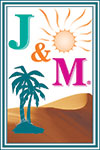
While the term halal may have specific “definitions” within the Islamic community, the manner in which various food items comply with these stringencies is both cultural and personal. Halal certification, however, is specific and continuing to develop.
A Foundation in Diverse Cultures
Culturally, adhering to halal dietary requirements may vary by country or individuals within that country. For example, some countries or individuals may consider kosher to be acceptable, while others do not. Claims that Muslims consume kosher certified products may be true in some cases, but it is not the norm.
In contrast, we found that other countries require everything, excluding fresh fruits and vegetables, to be halal certified and only by organizations approved by the respective country’s government. These countries prove more difficult for American exporters unless their certifiers are on a recognized and approved list.
Halal is also a personal choice. Consumers may choose to read labels on their own and avoid products with ingredients like gelatin and alcohol. They may or may not consume meat that is not halal certified. This is easier to do when purchasers are free to shop and compare on their own. Or if the community butchers its own animals for meat, consumers who are members of that community know who those individuals are.
